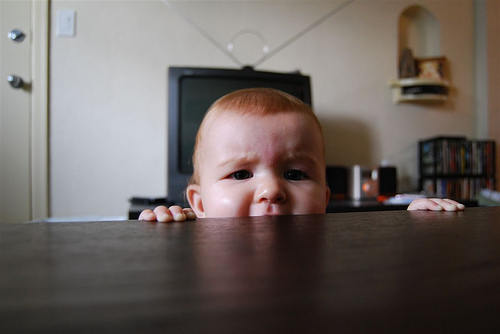Over a year ago, The State Board of Education of Kansas revised science education standards, and admitted supernatural causation as part of science. This was part of a concerted effort by so-called socially conservative members of the board to revise science standards to make them more religiously correct. Science is not supposed to be religiously correct – it’s supposed to be an independent method by which we can investigate the natural world. Science as a process often forces conclusions that fly in the face of contemporary interpretations of scripture. For instance, the realization that other planets have moons (which don’t orbit the earth) and that earth goes around the sun flew in the face of Biblical passages that suggested otherwise because God could halt the sun’s motion in the sky. The observation of the process, as well as the outcome, of natural selection flies in the face of a literal reading of many creation myths, including Christianity’s (by the way, who said God was in the rest frame of the Earth?).
The political winds blow differently now across the Kansas plains. This past week, “the newly elected state board of ed voted to restore the science in their science standards”:http://www2.ljworld.com/news/2007/feb/17/science_shift/ before the previous standards even had a chance to take effect. This swing is good. It would have been a shame for students in Kansas to have been put decades behind their peers in other states and nations because of the misguided whims of those with power and no understanding of science. There are lessons in this pendulum, however, and we shouldn’t forget them.
First, it is clear that in a democracy a few people with power in a small, controlling group can exercise their will on the majority. For things that bring real social benefit to the people, this can be a good thing. However, in this case we see democracy applied to a method which is inherently non-democratic. Science isn’t a popularity contest. Science isn’t “fair and balanced”. Science is a harsh process of data collection, interpretation, prediction, and more data collection. This cycle draws conclusions from the existing data, and hundreds or thousands of experiments may reveal explanation which fly in the face of both dogma and common sense. Quantum mechanics isn’t up for a vote. Plate tectonics doesn’t have to pass a primary. Gravity doesn’t have to make itself look pretty for the cameras. None of these depend on the will of people to be taken as fact, and yet all are “theories”. Lasers bring music from our CDs to our ears, earthquakes shake cities everyday, and things fall. Why should evolution, which has as much or more overwhelming evidence, have to be put into the classroom (or removed from it) by a vote?
The other lesson is that scientists cannot stand idly by and let others speak for them. Who speaks for science, if not us? Run for schoolboards. Go to PTA meetings. Volunteer at your local library. Go to your child’s class or go see your old high school teachers, and talk about what you do and how you do it. Be a human face to science. Don’t let members of the state board of education, politicians, or TV talking heads go on claiming that science is done by emotionless automatons with some kind of anti-religion political agenda. Show them your love for your craft, give them a face to think of when they hear a science story. Most importantly, show them that it is real people who do science, people with feelings and beliefs and opinions who also understand that when the methods of science bring judgement on natural causation, you have to rethink those feelings, beliefs, and opinions.


